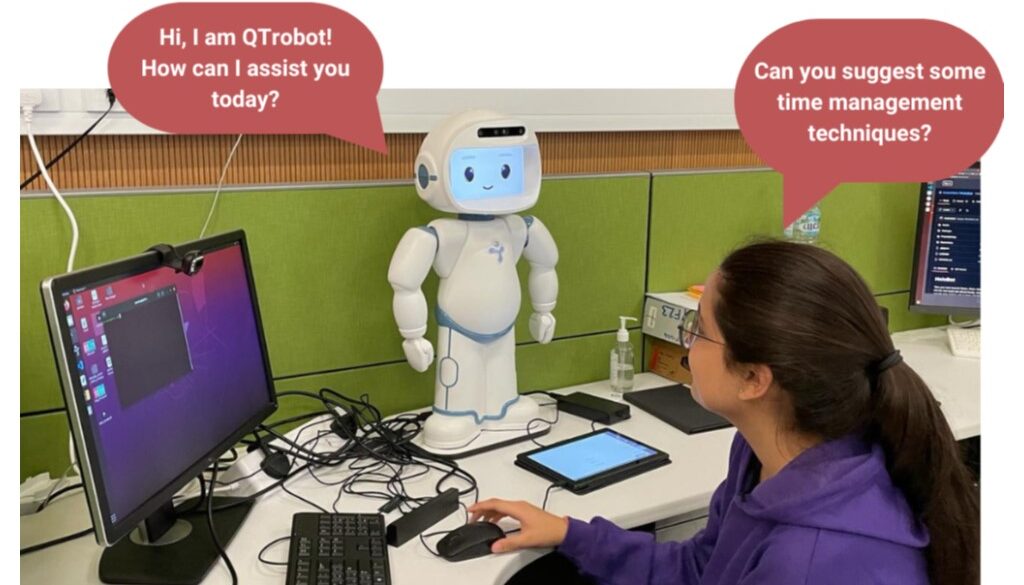
Abstract:
Attention-Deficit Hyperactivity Disorder (ADHD) significantly impacts the academic, social, mental, and psychological well-being of young adults. Despite the availability of therapies and medications, there is a lack of direct tools to help diagnosed individuals overcome their daily challenges. To address this gap, the researchers developed software tools integrated into a social robot that acts as a coaching companion for university students struggling with ADHD. These tools assist students with task management and completion and are organized into the following modules: Conversation, Schedule Generation, Voice Note Reminders, the Pomodoro Technique, and Engagement Detection. By integrating these modules, the coaching robot aims to provide tailored support to young adults with ADHD, helping them navigate daily activities and improve their overall quality of life.
The researchers conducted a preliminary evaluation of the system with three college students who, despite lacking an official ADHD diagnosis, expressed challenges in time and task management. The results emphasized the robot’s effectiveness in assisting students with these challenges, highlighting the system’s potential for future usability and effectiveness in addressing the needs of individuals with ADHD facing similar difficulties.
Reference:
Lalwani, Himanshi, Maha Elgarf, and Hanan Salam. “Productivity CoachBot: a Social Robot Coach for University Students with ADHD.” (2024).